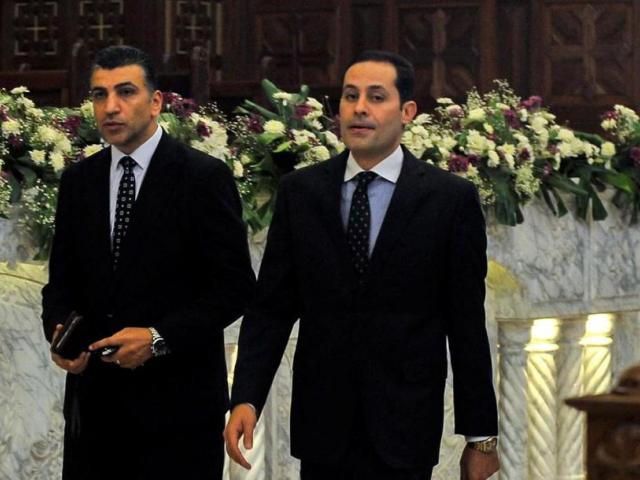
EIPR condemns issuing prison sentence against Ahmed Tantawi's campaign manager, Mohamed Abu al-Diyar
Press Release
The Egyptian Initiative for Personal Rights (EIPR) condemns the Matareya Misdemeanor Court's decision to uphold the prison sentence issued against lawyer Mohamed Abu al-Diyar, the campaign manager of former presidential hopeful Ahmed Tantawi.
Last February, the court handed Abu al-Diyar a one-year suspended prison sentence in absentia and ordered him to pay a bail of 20,000 pounds to suspend the implementation of the verdict. The case, No. 16336 of 2023 (Matareya Misdemeanors), was referred from the Supreme State Security Prosecution in the case known in local media as the "Ahmed Tantawi’s endorsements" case.
The same court also sentenced Tantawi, who was present for the sentencing, to one year in prison and ordered him to pay a bail of 20,000 pounds to temporarily suspend the implementation of the penalty while depriving him of running for parliamentary elections for a period of five years starting from the date when the judgment becomes final, in accordance with Article 65 of Law No. 45 of 2014 regulating the exercise of political rights. On May 8, the court upheld the verdict against Abu al-Diyar. Tantawi and the other defendants’ appeal hearings will begin on May 27.
Last February, the court sentenced Abu al-Diyar to one year in prison with labour and ordered him to pay a bail of 20,000 pounds to suspend the implementation of the sentence. It also sentenced the remaining defendants (number 3 to 23 on the charge sheet) to one year in prison with labour and immediate implementation. It further ordered the payment of criminal proceedings costs by all defendants.
In late April, the North Cairo Court rejected a request submitted by the defence lawyers of Abu al-Diyar to dismiss the court panel that examined Abu al-Diyar's appeal based on "lack of confidence in the impartiality of the Matareya Misdemeanor Court, as a member of the National Security Agency (State Security) committed an infringement of court hearing procedures during the trial sessions, and a violation of the defendants’ privacy, by standing on the judges panel and taking photos of the lawyers, in addition to the court’s disregard of the complaint submitted by the lawyers present at the session over that incident". The lawyers submitted several requests to the court, including a request to obtain a copy of the minutes of the 26 March session, during which the incident occurred, and another request to summon the concerned security official, whose name and assignment are known to the court’s president of the court circuit, to question him about the purpose of taking photos of the lawyers and ascertain if he was instructed to do that and by whom. However, the court rejected the requests and the request to dismiss the sitting judge panel and refer the case to another circuit. It also fined the requesters 4,000 pounds.
The case was first heard on 7 November after the Supreme State Security Prosecution referred Case No. 2255 of 2023 (Supreme State Security) to the court. The referral decision included the indictment of Tantawi and his campaign manager for being complicit by incitement, agreement, and provision of one of the election procedure papers tothe defendants from the third to the 23rd on the chargesheet. The defendants from the third to the 23rd were charged with printing and distributing form No.4 confirming nomination by citizens of a presidential candidate without prior permission from the competent authorities. Such crimes are punishable by one-year imprisonment, fines, and deprivation of the benefitting candidate – in case of prior knowledge and approval of such actions – of the right to run for parliamentary elections for a period of five years, starting from the date when the judgment becomes final.
The case was predicated on the call disseminated by Tantawi’s campaign in early October to citizens desiring to issue an official endorsement in support of his presidential bid to fill in the form designed for this purpose, which was already published and available on various news and media platforms – without having to go in person to public notary offices. This was meant as a symbolic move designed to show support in response to the deliberate obstruction of citizens through the use of intimidation and bullying outside public notary offices, as previously documented by EIPR.
EIPR had documented a number of serious and systematic violations against Tantawi’s campaign, which were in breach of constitutional civil and political rights, including freedom of expression, the right to participate in public affairs, and the right to bodily integrity. All these violations were committed in the context of obtaining the public endorsements required for candidature, or in the context of volunteering in Tantawi’s electoral campaign, or even in some cases simply in response to an expression of a critical opinion of the election process in general. These violations included the arbitrary arrest of a large number of Tantawi’s campaign members and obstructing citizens’ attempts to obtain and file endorsements by bullying and intimidating them in the vicinity of public notary offices as well as coercion by some public agencies of their staff to go to voting stations to cast their ballots, when the polling actually started. The intimidation instances occurring in and around notary offices took place within sight of police officers and without any intervention from the present officers, and in many cases, had escalated to physically beating a number of citizens.



